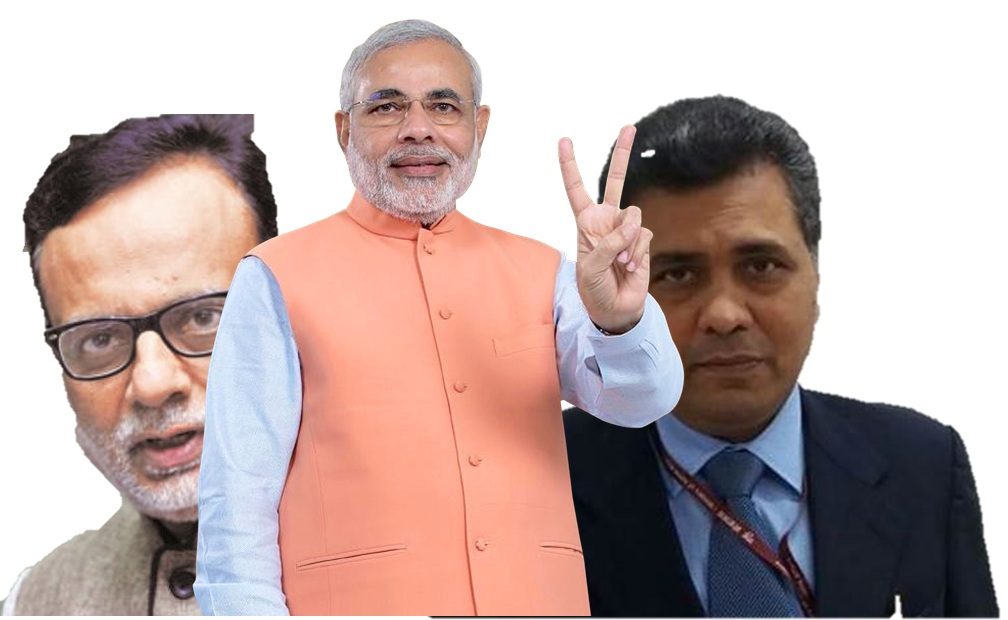We often read that ‘shell companies’ are used as a medium for fraud and scams by big industrialists. In the case of Nirav Modi’s fraud, almost 150 shell companies were identified. The shell companies in the Nirav Modi scam were registered in the name of his family members. The Nirav Modi scam cost billions of dollars to the Indian public sector banks with PNB alone losing $1.77 billion. At present, the Modi government is probing deposits of almost 1 billion dollars in 20,000 such companies, indicating that the shadow economy of India runs deep, accounting for almost 25 percent of GDP. The shell companies are loosely defined as non-trading companies which are used for various financial transactions and kept dormant for future use in any other capacity, and mostly exist only on paper. The real problem is that the government has no ‘proper definition’ of shell companies.
The Modi government has appointed a task force headed by Finance Secretary Hasmukh Adhia and Corporate Affairs Secretary Injeti Srinivas, comprising representatives from the Enforcement Directorate (ED), Financial Intelligence Unit (FIU), Directorate of Revenue Intelligence (DRI), Securities and Exchange Board of India (SEBI) and the Income Tax Department, among others in February 2017 to take on shell companies. According to Injeti Srinivas, “one of the key issue hampering the investigations and prosecutions against entities involved in financial irregularities has been lack of a proper and uniform definition for ‘shell companies’, The task force has suggested some possible parameters to define if a company has been set up to launder money or exploit regulatory arbitrage.”
The Minister of State for Corporate Affairs said “we are working on it. Very soon, we will come out with it (definition of shell companies), Obscure ownership, excessive leveraging and disproportionate investment in shares of other companies are among the possible criteria being looked at for defining shell companies.”
In the last financial year ’18, the Registrar of Companies (RoC) removed the names of 2.26 lakh companies from its register and disqualified 3.09 lakh directors. Out of the 2.26 lakh companies that were deregistered, cash was deposited in the bank accounts of 1.68 lakh firms post demonetization on 8 November 2016, according to data available with the Ministry. The task force has identified another 2.25 lakh shell firms to de-register this financial year. The task force appointed by the Modi government has frozen the bank accounts of these companies and directors of companies have been restricted from accessing the bank. Except the 2.25 lakh companies, almost 7000 limited liability partnership (LLP) firms have also been identified for not filing financial statements as per the rules and guidelines under Companies act, 2013. Action against these LLP firms could also be taken by the task force committee. The companies will get the chance to argue their points, according to a statement by the ministry. “An opportunity of being heard will be given to these identified companies and LLPs by way of notices regarding their default and the proposed action.” The panel has categorized shell companies into three types.
The first one is a confirmed list which consists of companies which the panel is confident are involved in illegal activities. There are 16537 such companies which are involved in money laundering and tax evasion as per the panel. The second list is a derived list which is identified on the basis of 100 percent common directorships with the confirmed shell companies. The number of such companies is 16739 and their directors could be jailed for a period of up to 10 years for embezzlement. The third list is a suspect list which includes 80,670 suspected shell companies, created by the Serious Frauds Investigations Office (SFIO) using certain red flag indicators. The Modi government loses billions of dollars due to tax evasion through shell companies. Relatives of many high profile leaders like the cousin of former Finance Minister P Chidambaram and his son Karti Chidambaram were found to be involved in running shell companies. Government is expected to earn more money in corporate and income taxes by cracking down on shell companies. The existence of shell companies also makes a country a poor destination for foreign investment, because investors are not sure whether they are investing in a genuine company or not.
